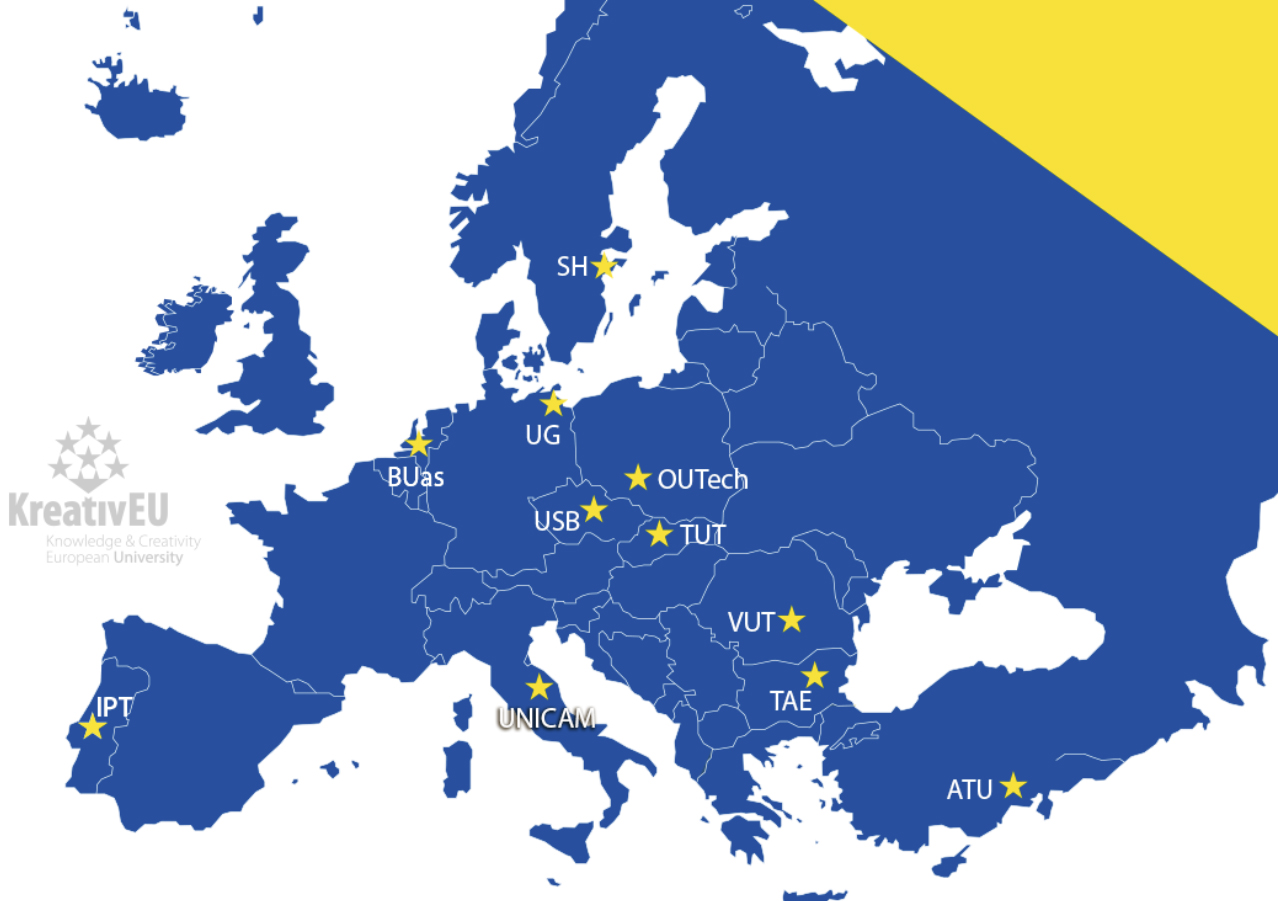We are launching operations within the KreativEU alliance

11 new study programs, courses for students, conferences, short- and long-term exchanges, as well as scientific collaboration—our university is officially joining KreativEU, the European Universities Alliance.
The European Universities Alliance is an initiative that has been active in Europe for several years. Its goal is to foster multi-level cooperation between several or even a dozen universities that commit to joint efforts in the fields of education and research.
A few months ago, the European Commission established 14 new alliances, including KreativEU, which Opole University of Technology has joined.
KreativEU (Knowledge & Creativity European University) is a joint initiative of 11 higher education institutions from across Europe, located in Portugal, Bulgaria, the Czech Republic, Germany, Italy, the Netherlands, Poland, Romania, Slovakia, Sweden, and Turkey. Now, KreativEU is officially starting its operations.
“Together with the universities in the alliance, we will develop interdisciplinary study programs that integrate the expertise of our faculty with the potential of other institutions. Eleven new study programs will be created, taught in English, and jointly offered by several universities, enabling students to study not only in Opole but also in other participating countries,” explains Aneta Kucińska-Landwójtowicz, Vice-Rector for Cooperation at Opole University of Technology.
Another key area of the alliance’s activities is micro-credentials. “Together with our new partners, we will prepare short courses that allow students to earn micro-credentials, certifying their knowledge and qualifications in specific fields. We will focus on topics central to our university’s mission, such as eco-culture, innovation, creativity, and the preservation of national heritage. However, everything will be approached in the context of contemporary challenges, utilizing artificial intelligence to enhance Europe’s sustainable development,” Aneta Kucińska-Landwójtowicz adds.
Within the KreativEU framework, students will also have access to Blended Intensive Programs (BIP), a short-term academic exchange format, and participate in conferences, hackathons, and various seminars. Applications for BIP exchanges are already open. “As for micro-credentials and new study programs, these will take some more time. The first six months of our project will primarily focus on preparing procedures and regulations,” informs Vice-Rector, who encourages students to take advantage of KreativEU opportunities.
“This is an excellent opportunity to start working in international teams. We talk a lot about interdisciplinarity and internationalization, but our students do not always have access to such opportunities. Already, we can see that these short programs, which facilitate project-based collaboration in international teams, are highly valued by our students. They actively engage in them, and this is one of the key benefits—learning and working together in multinational teams while visiting different universities. The project also includes research-related initiatives. We see great potential for our faculty members to establish connections with colleagues from other universities. We have planned the creation of several laboratory hubs and research teams that will jointly apply for grants, conduct scientific research, and develop new research areas,” announces Ms Kucińska-Landwójtowicz.